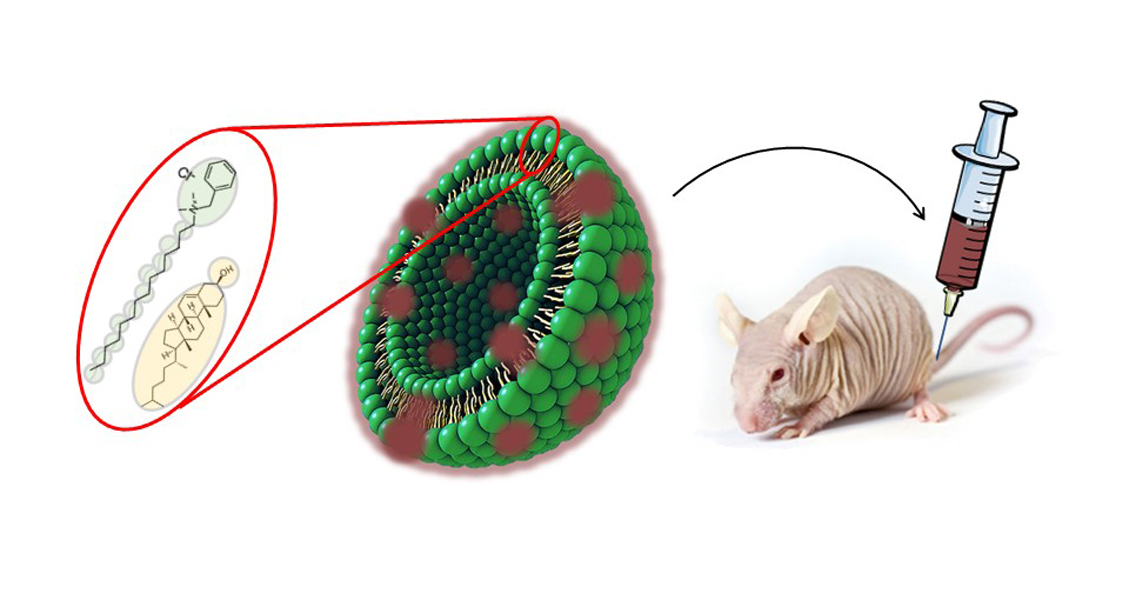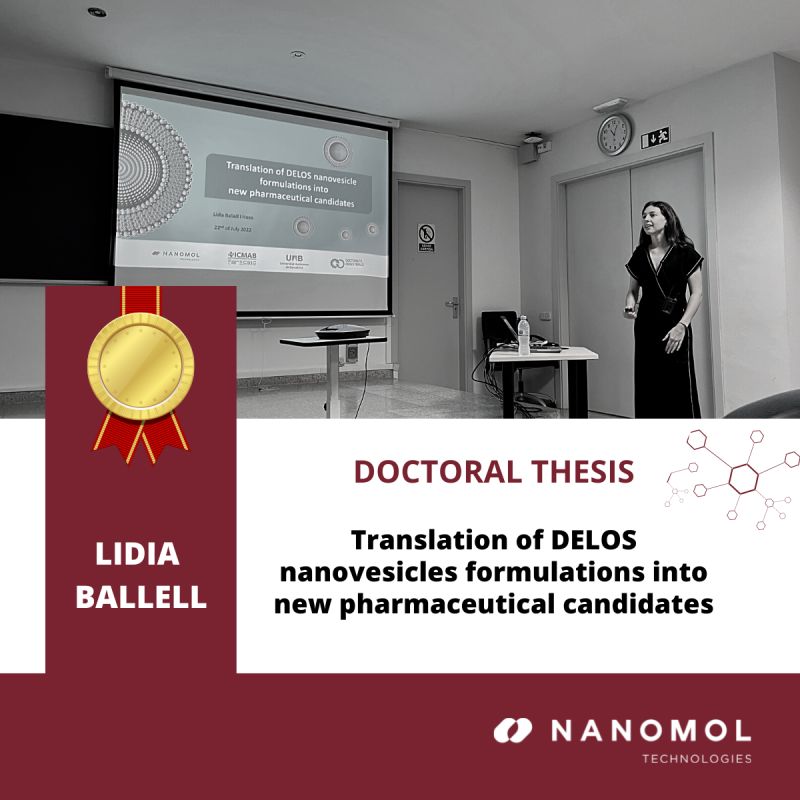
News

New nanocarrier for bio-imaging and drug-delivery applications
An article titled "MKC-Quatsomes: a stable nanovesicle platform for bio-imaging and drug-delivery applications" has been published online in Nanomedicine: Nanotechnology, Biology and Medicine journal. The new nanovesicle formulation is based on the quatsome architecture - which stands out due to the high colloidal stability and homogeneity in size – and has now been shown to be suitable for in vivo dosing.
In collaboration with the Oncogenesis and Antitumour Drug group of the Biomedical Research Institute of the Hospital de la Santa Creu i Sant Pau, led by Dr. Ramon Mangues, MKC-Quatsomes were tested in live mice bearing xenografted colorectal tumors. After intravenous injection of fluorescently labelled MKC-Quatsomes, biodistribution assays showed nanovesicle accumulation in tumors, liver, spleen, and kidneys, but not in any other organ. Importantly, MKC-Quatsomes were well-tolerated at the administered doses, and no histological alterations or toxicity was found in any of these organs. These new results suggest the applicability of quatsomes in therapeutic approaches that require systemic delivery.
The article has been authored by researchers from Institut de Ciència de Materials de Barcelona (ICMAB-CSIC), Biomedical Research Institute Sant Pau and Josep Carreras Research Institute, Facultat de Farmàcia i Ciències de l'Alimentació de la Universitat de Barcelona, Centro de Investigación Biomédica en Red de Bioingeniería, Biomateriales y Nanomedicina (CIBER-BBN) and Nanomol Technologies SL.
Article of reference:
MKC-Quatsomes. A stable nanovesicle platform for bio-imaging and drug-delivery applications co-authored by Guillem Vargas-Nadal et al., Nanomedicine: Nanotechnology, Biology and Medicine, 24 (2020) 102136.
https://doi.org/10.1016/j.nano.2019.102136

